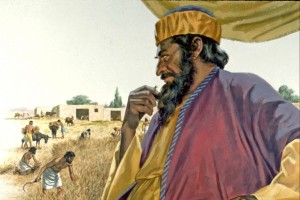Clearly connected to the end of chapter 11, the first verse of chapter 12 begins with the admonition to “remember your creator in the days of your youth.” The coming “evil days” he refers to is the process of aging. Solomon is correctly pointing out that remaining faithful to the Lord is much better; and that returning to serve Him is likely to be more difficult if one wanders away. Solomon is beautifully eloquent in these first few verses.
Some commentators have supposed that the shift in verses 6-8 to speaking of the Preacher in the third person may indicate a different author. But such a supposition requires forgetting that the first chapter began the same way. This most beautiful of books ends with the last two verses giving the most valuable and timeless advice:
“The end of the matter; all has been heard. Fear God and keep his commandments, for this is the whole duty of man. For God will bring every deed into judgment, with every secret thing, whether good or evil.”
It is theorized by many that Solomon wrote this book in his later years, and must have repented for the sins of his younger years. We have no way of knowing whether this is actually the case., but we would like to think so. After all, all that wisdom had to be good for something, did it not?
Read or listen to audio of ESV version of this selection from this link.
/Bob’s boy
___________________
some images © V. Gilbert & Arlisle F. Beers
Please note: I did not design the reading plan that I am following in my blog. All of my comments in this blog, however, are solely my responsibility. When reading ANY commentary, you should ALWAYS refer first to the scripture, which is God’s unchanging and unfailing word. Reading schedules, as well as a link to the site where you can get the reading plan that I’m currently following for yourself can be found on the “Bible Reading Schedules” page of my website at http://graceofourlord.com.










